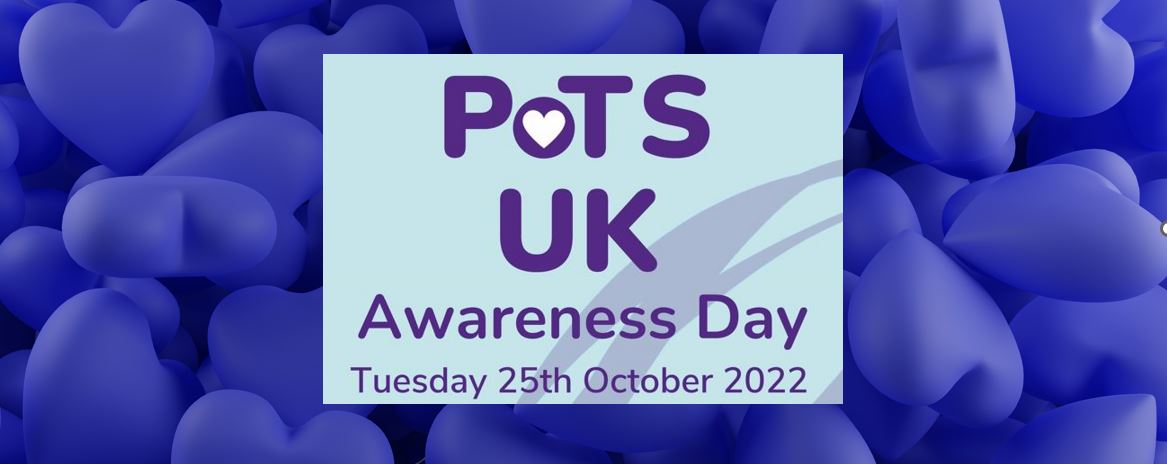Standing up is a movement many people can take for granted or do without giving it much thought. But what if standing up led to frequent disabling symptoms such as breathing difficulties, blackouts, light-headedness and fatigue? This is exactly what many people with Postural Tachycardia Syndrome (PoTS) can experience every day.
A short introduction to PoTS
Postural Tachycardia Syndrome (PoTS) is an abnormality of the functioning of the autonomic (involuntary) nervous system. People with PoTS experience ‘orthostatic intolerance’ which means that they mostly experience symptoms on moving to an upright position. Symptoms can be debilitating, ranging from mild to severe and varying from day to day, and can include (but are not limited to) breathing difficulties, blackouts, migraine, anxiety, gut and bladder problems, and poor sleep.
25% of people with PoTS are wheelchair users
(Mis)diagnosis
PoTS was first recognised by medical journals in 1993, but many medical professionals are still unaware of the condition today and getting the right diagnosis can therefore be a lengthy and frustrating process. Patients are commonly misdiagnosed with other conditions such as anxiety and depression, reflex syncope, and chronic fatigue syndrome.
50% are told that their physical symptoms are all in their head.
Conditions associated with PoTS
Other conditions can also be associated with PoTS and can include one or more of conditions including:
- Hypermobile Spectrum Disorder and Hypermobile Ehlers-Danlos Syndrome
- Low blood pressure
- Chronic fatigue syndrome
- Mast Cell Activation Disorder
- Inappropriate Sinus Tachycardia
- Autoimmune conditions
- Abnormally functioning genes
Building an inclusive environment
Planning to consider the barriers that people in the workplace can face, the reasons why these barriers exist, and seeking ways to break those barriers down is a huge step towards creating an accessible and inclusive workplace for everyone. Even if someone doesn’t yet know that they have a chronic illness, perhaps because they are waiting for a diagnosis, an inclusive workplace can have a profoundly positive impact for the individual, the teams they work with, and for the organisation as a whole.
Equality Impact Analysis are one of the single most powerful processes in our toolkit that can support growing an inclusive workplace culture and the University of Kent has everything need to- help you get started:
For any further advice about please contact the University Equality and Diversity team.
Get more information and find support
If you require specific advice about disability, neurodivergence or chronic illness, or would like advice to help build an inclusive environment for everyone, please contact the Staff Disability Network.
Find out about the University of Kent’s Occupation Health team and how to get a referral.
We would like to acknowledge the PoTS UK Charity, whose website and digital resources have enabled development of this blog, and we recommend visiting the website to all those who would like to find out more about Postural Tachycardia Syndrome.

